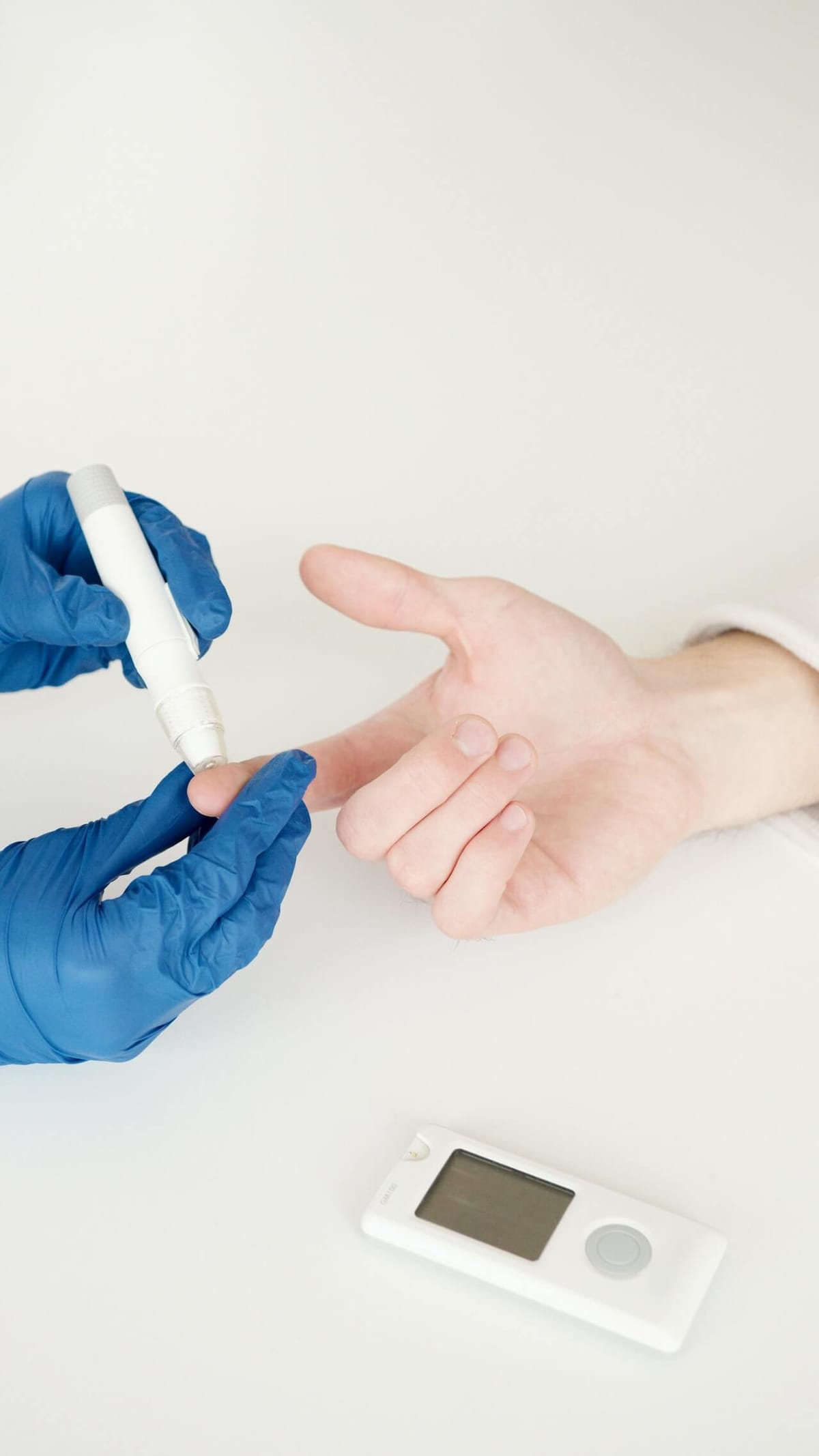One of the most common and challenging aspects of PCOS is the link between this condition and insulin resistance. Insulin resistance occurs when the body becomes less responsive to the hormone insulin, which is responsible for regulating blood sugar levels. Women with PCOS often experience insulin resistance, which can lead to a higher risk of developing type 2 diabetes, weight gain, and a range of other health issues. In this article, we will explore the connection between PCOS and insulin resistance, and provide some valuable insights into how women can manage their symptoms and improve their overall health. So, if you or someone you know is struggling with PCOS, keep reading to learn more about this complex condition and the strategies that can help you take control of your health and wellbeing.
Understanding Polycystic Ovarian Syndrome (PCOS)
PCOS is a hormonal disorder that affects the ovaries, the female reproductive organs responsible for producing eggs and hormones such as estrogen and progesterone. Women with PCOS produce higher levels of androgens, male hormones that can interfere with the normal function of the ovaries. As a result, many women with PCOS experience irregular periods, infertility, and other reproductive problems.
In addition to reproductive issues, PCOS can cause a range of other symptoms, including weight gain, acne, excessive hair growth, and insulin resistance. The exact cause of PCOS is not known, although it is thought to be related to a combination of genetic and environmental factors. There is no cure for PCOS, but there are several treatment options available that can help manage symptoms and improve overall health.
What is insulin resistance?
Insulin resistance is a condition that occurs when the body becomes less responsive to the hormone insulin. Insulin is produced by the pancreas and plays a critical role in regulating blood sugar levels. When you eat, your body breaks down carbohydrates into glucose, which enters the bloodstream. Insulin then helps transport the glucose from the bloodstream into the cells, where it can be used for energy.
In people with insulin resistance, the cells become less responsive to insulin, which means that glucose stays in the bloodstream and blood sugar levels remain high. To compensate, the pancreas produces more insulin, which can lead to a range of health problems, including type 2 diabetes, weight gain, and cardiovascular disease.
Causes of insulin resistance in women with PCOS
The exact cause of insulin resistance in women with PCOS is not fully understood, but it is thought to be related to the high levels of androgens produced by the ovaries. Androgens can interfere with the normal function of insulin, making the body less responsive to the hormone. In addition, women with PCOS are more likely to be overweight or obese, which can also contribute to insulin resistance.
Other factors that can increase the risk of insulin resistance in women with PCOS include a sedentary lifestyle, a diet high in processed foods and sugar, and a family history of diabetes or insulin resistance.
Symptoms of insulin resistance in women with PCOS
Insulin resistance in women with PCOS can cause a range of symptoms, including:
- High blood sugar levels
- Fatigue
- Brain fog
- eight gain
- Difficulty losing weight
- Increased appetite
- Cravings for sugary or starchy foods
- Acne
- Excessive hair growth
- Irregular periods
- Infertility
If left untreated, insulin resistance can lead to more serious health problems, including type 2 diabetes, heart disease, and stroke.
Diagnosis of insulin resistance in women with PCOS
Insulin resistance can be diagnosed with a blood test called a fasting glucose and insulin test. This test measures the levels of glucose and insulin in the blood after an overnight fast. If the levels of insulin are higher than normal, this can indicate insulin resistance.
Women with PCOS should also be screened for diabetes and other metabolic disorders regularly, as they are at higher risk of developing these conditions.
Treatment options for insulin resistance in women with PCOS
The treatment options for insulin resistance in women with PCOS depend on the severity of the condition and the individual's overall health. In some cases, lifestyle changes such as diet and exercise may be enough to manage insulin resistance and improve overall health.
In more severe cases, medications such as metformin may be prescribed to help regulate blood sugar levels and improve insulin sensitivity. Other medications that may be used to treat insulin resistance in women with PCOS include thiazolidinediones, which help the body use insulin more effectively, and anti-androgens, which can reduce the production of androgens in the ovaries.
Lifestyle changes to manage insulin resistance and PCOS
Lifestyle changes can be an effective way to manage insulin resistance and improve overall health in women with PCOS. These changes include:
- Eating a healthy diet that is low in processed foods and sugar and high in fiber and protein
- Exercising regularly, including both aerobic and strength training
- Maintaining a healthy weight
- Getting enough sleep
- Managing stress levels
- Quitting smoking
- Limiting alcohol intake
Diet recommendations for women with PCOS and insulin resistance
Diet plays a critical role in managing insulin resistance in women with PCOS. Eating a healthy diet that is low in processed foods and sugar and high in fiber and protein can help regulate blood sugar levels and improve insulin sensitivity.
Some specific dietary recommendations for women with PCOS and insulin resistance include:
- Eating smaller, more frequent meals throughout the day to help regulate blood sugar levels
- Limiting carbohydrate intake, especially refined carbohydrates such as white bread, pasta, and rice
- Choosing complex carbohydrates such as whole grains, fruits, and vegetables
- Eating plenty of protein, including lean meats, fish, and plant-based sources such as beans and lentils
- Avoiding sugary drinks and opting for water, herbal tea, or sugar-free beverages
- Incorporating healthy fats such as olive oil, avocado, and nuts and seeds into the diet
Supplements and medications for insulin resistance and PCOS
In addition to lifestyle changes and medications, there are several supplements and natural remedies that may be helpful in managing insulin resistance and PCOS. These include:
- Inositol: a type of B vitamin that can help improve insulin sensitivity and regulate menstrual cycles
- Chromium: a mineral that can help regulate blood sugar levels
- Magnesium: a mineral that can help improve insulin sensitivity and lower inflammation
- Vitamin D: a vitamin that can help regulate menstrual cycles and improve insulin sensitivity
- Omega-3 fatty acids: healthy fats found in fatty fish such as salmon and sardines that can lower inflammation and improve insulin sensitivity
Before taking any supplements or natural remedies, women with PCOS should consult with their healthcare provider to ensure that they are safe and effective.
Conclusion
PCOS is a complex hormonal disorder that can cause a range of physical and emotional symptoms. One of the most challenging aspects of PCOS is the link between this condition and insulin resistance. Women with PCOS often experience insulin resistance, which can lead to a higher risk of developing type 2 diabetes, weight gain, and a range of other health issues.
Fortunately, there are several treatment options available for insulin resistance and PCOS, including lifestyle changes, medications, and supplements. By working with their healthcare provider and making changes to their diet and lifestyle, women with PCOS can manage their symptoms and improve their overall health and wellbeing.







